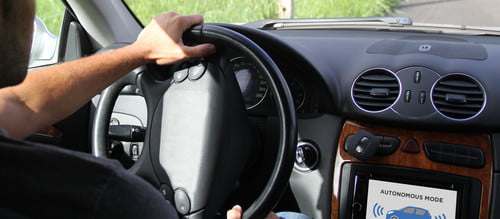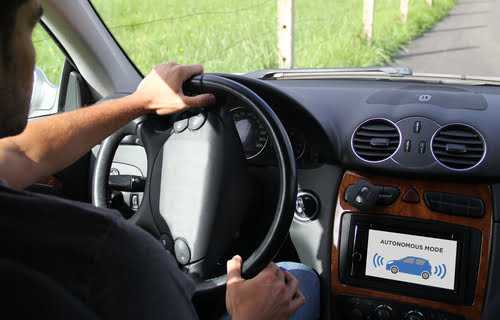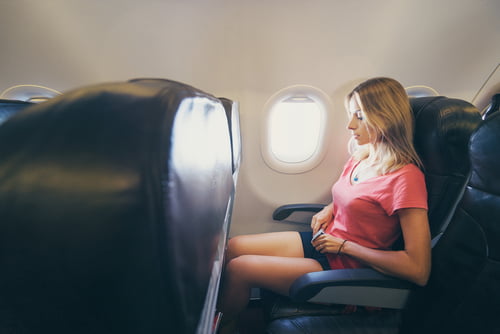Are Driverless Cars Really That Safe?

 Vehicles with autonomous driving capability are all the rage. While fully automated cars are still a few years or decades away, cars that have limited automation are already here. These changes have given rise to an emerging legal landscape. Wagner, McLaughlin & Whittemore, experienced auto accident lawyers in Tampa, is keeping apprised of the impact this new technology is having on personal injury law.
Vehicles with autonomous driving capability are all the rage. While fully automated cars are still a few years or decades away, cars that have limited automation are already here. These changes have given rise to an emerging legal landscape. Wagner, McLaughlin & Whittemore, experienced auto accident lawyers in Tampa, is keeping apprised of the impact this new technology is having on personal injury law.
Does Autonomous Driving Make Cars Safer?
A major argument in favor of driverless cars is that they will make roads safer. The argument is that the vast majority of accidents are caused by human error. Drivers are tired or distracted, or they simply misjudge their driving conditions. Since computers and sensors can’t make these kinds of mistakes, then it follows – the argument goes — that there will be fewer accidents.
While this argument in favor of autonomous vehicles may be correct as stated, there are other factors to consider. Computers and sensors may not make mistakes the way humans do, but they are far from flawless. Current autonomous technology has shown glaring weaknesses in the capabilities of self-driving cars. Sensors can often be fooled by conditions that wouldn’t bother a human operator. These can include light conditions or certain color backgrounds that prevent the sensors from detecting a potentially dangerous object. While a self-driving car can react faster, it cannot predict possible changes in road conditions or driver actions the way a human could and may not avoid all accidents under congested driving conditions.
Current Cars Aren’t Really Driverless
As a lawsuit Tesla faces over its autopilot feature shows, current “autonomous” cars aren’t designed to be truly driverless. The car’s technology is a driver assist that helps keep the car on the road and in its lane and can help to stop the vehicle and avoid most accidents in case the driver gets distracted. This technology can’t handle all conditions, and it isn’t designed to navigate sharp turns or other complex road conditions. Tesla’s technology, which represents the pinnacle of options currently available to consumers, still expects drivers to keep their hands on the wheel and be ready to take full control of the car at any time.
While laws may be changing surrounding driverless cars and fault, both general accident laws and insurance laws haven’t really caught up to the changes. If you are injured in any type of car accident, it is important to contact Tampa personal injury attorneys knowledgeable in this area. The law firm of Wagner, McLaughlin & Whittemore can assist clients who have been injured in any type of auto accident. Let our attorneys help you in filing a claim and maximizing your recovery.

 Amusement parks can provide a day full of excitement for the family. There are rides to cover all ages from slow horse carousels to the fastest and largest roller coasters. As much fun as a park is, accidents can happen just when you least expect them. Your exciting day just turned into your worst nightmare.
Amusement parks can provide a day full of excitement for the family. There are rides to cover all ages from slow horse carousels to the fastest and largest roller coasters. As much fun as a park is, accidents can happen just when you least expect them. Your exciting day just turned into your worst nightmare.
Rights you have as a visitor
Amusement parks in all states are held to certain safety standards. They have a responsibility to do whatever they can to keep their visitors safe. If they don’t fulfill this obligation and visitors are injured as a result, they should be held accountable for medical bills, including ongoing medical treatment, lost wages and pain and suffering.
What you need to have a case
Should you be injured at an amusement park, evidence will need to be gathered, such as photos and videos with time and date, as well as eyewitness accounts. Eyewitness accounts should be recorded in writing, so be sure to get the name and contact information for all witnesses to the event. After suffering an injury, be sure to report the incident and your injuries to management of the park, and ask them to fill out an incident report. The paramedics or security should be called, and they will also fill out a report of what happened.
You also want to collect any information from the hospital. You want medical charts, bills, and any out-of-pocket expenses that you incurred, such as parking at the hospital. For lost wages, have your supervisor verify the amount of wages you lost, in writing on the company letterhead. Also note if there was any bonus money lost.
Help is here
We understand that your accident has caused pain and suffering for you and your family, and we want to help you get the compensation you deserve. Our experienced Tampa personal injury attorneys can help collect the information that you will need, including by issuing subpoenas to park workers and others, if needed. Through no fault of your own, your beautiful day was destroyed, and we can assure you that we will fight hard to repair the damage. Don’t wait any longer. Give us a call today at Wagner, McLaughlin & Whittemore, and let us get started on your claim.

All of us have seen scary movies involving emergencies in the air. At Wagner, McLaughlin & Whittemore, we want in-flight emergencies to stay a matter for Hollywood writers. Anyone traveling in an airplane these days should prepare for an emergency in order to avoid an injury. Here are a few tips to protect your life while flying in an airplane.
1: Listen to the Flight Attendant’s Directions
After getting on an airplane, a flight attendant will provide directions to follow in the event of emergencies during the flight or landing. Make sure to listen carefully to his or her directions in order to know what to do if or when an emergency occurs.
2: Notice Where the Emergency Exits are Located
Make sure to know where the nearest emergency exit is located on the airplane. These doors are labeled with signs and lights. In addition, while walking through an airplane, notice where other exits are located.
3: Keep Your Seat Belt Fastened During Liftoffs and Landings
You are required to fasten your seat belt during liftoffs and landings to avoid an injury. In addition, if there is a problem during the flight, an attendant may tell you to fasten your seat belt. There are also signs that may light up that inform you to fasten your seat belt.
4: Use Overhead Storage Bins Correctly
To prevent a head injury, make sure that overhead storage bins are locked above your seat and other passengers’ seats. During a bumpy flight, heavy suitcases can drop from poorly locked storage bins, leading to an injury.
5: Prevent Burns from Hot Foods and Beverages
Use caution while drinking hot beverages while on an airplane to avoid burns inside your mouth or on your body. Make sure that hot foods are cool enough to consume before eating anything.
6: Wear Natural Fabrics While On an Airplane
Experts recommend wearing clothing made of natural fabrics while on an airplane. If a fire occurs during a flight, man-made fabrics may be quicker to melt against your skin, leading to burns while making it difficult to escape from the airplane.
Contact Us For Assistance
Most of the above suggestions may appear nothing more than common-sensical, but they are important nonetheless. If you or a loved one is injured while using airplane transportation, contact a Wagner, McLaughlin & Whittemore Tampa personal injury attorney for assistance. We are here to help you.


